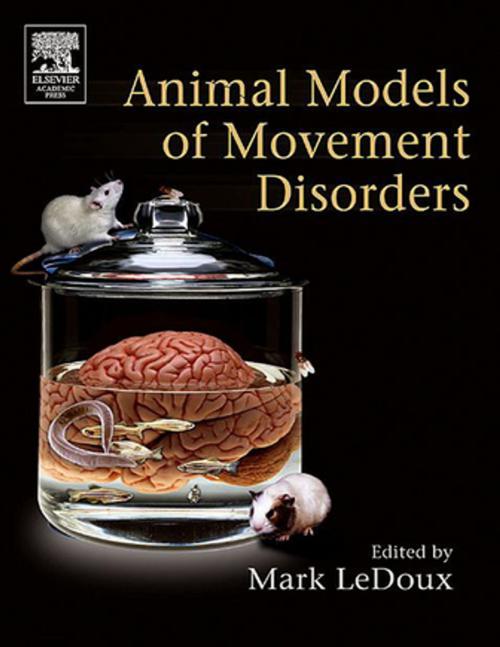Movement Disorders
Genetics and Models
Nonfiction, Health & Well Being, Medical, Specialties, Internal Medicine, Neuroscience, Neurology, Science & Nature, Science| Author: | ISBN: | 9780080470566 | |
| Publisher: | Elsevier Science | Publication: | January 25, 2005 |
| Imprint: | Academic Press | Language: | English |
| Author: | |
| ISBN: | 9780080470566 |
| Publisher: | Elsevier Science |
| Publication: | January 25, 2005 |
| Imprint: | Academic Press |
| Language: | English |
The use of animal models is a key aspect of scientific research in numerous fields of medicine. This book vigorously examines the important contributions and application of animal models to the understanding of human movement disorders and will serve as an essential resource for basic neuroscientists engaged in movement disorders research. Academic clinicians, translational researchers and basic scientists are brought together to connect experimental findings made in different animal models to the clinical features, pathophysiology and treatment of human movement disorders. A vital feature of this book is an accompanying DVD with video clips of human movement disorders and their corresponding animal models. The book is divided into sections on Parkinson disease, Huntington disease, dystonia, tremor, paroxysmal movement disorders, ataxia, myoclonus, restless legs syndrome, drug-induced movement disorders, multiple system atrophy, progressive supranuclear palsy/corticobasal degeneration and spasticity. This book serves as an essential resource for both clinicians interested in the science being generated with animal models and basic scientists studying the pathogenesis of particular movement disorders.
* Provides a single comprehensive resource on animal models of movement disorders that academic clinicians, translational researchers, and basic neuroscientists can refer to
* Includes contributions by expert movement disorder clinicians and top-level researchers in the field
* Features a DVD containing over 170 video clips of human movement disorders and the corresponding animal models
The use of animal models is a key aspect of scientific research in numerous fields of medicine. This book vigorously examines the important contributions and application of animal models to the understanding of human movement disorders and will serve as an essential resource for basic neuroscientists engaged in movement disorders research. Academic clinicians, translational researchers and basic scientists are brought together to connect experimental findings made in different animal models to the clinical features, pathophysiology and treatment of human movement disorders. A vital feature of this book is an accompanying DVD with video clips of human movement disorders and their corresponding animal models. The book is divided into sections on Parkinson disease, Huntington disease, dystonia, tremor, paroxysmal movement disorders, ataxia, myoclonus, restless legs syndrome, drug-induced movement disorders, multiple system atrophy, progressive supranuclear palsy/corticobasal degeneration and spasticity. This book serves as an essential resource for both clinicians interested in the science being generated with animal models and basic scientists studying the pathogenesis of particular movement disorders.
* Provides a single comprehensive resource on animal models of movement disorders that academic clinicians, translational researchers, and basic neuroscientists can refer to
* Includes contributions by expert movement disorder clinicians and top-level researchers in the field
* Features a DVD containing over 170 video clips of human movement disorders and the corresponding animal models















